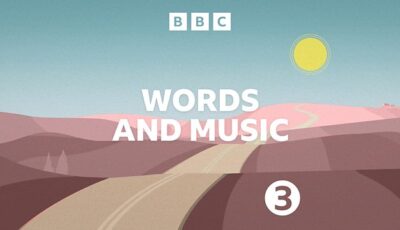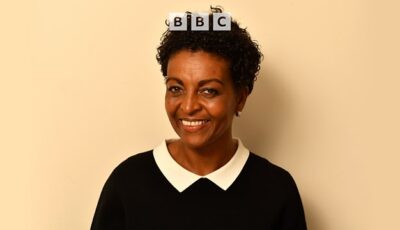Synopsis
William Shakespeare, trans. Prof. Mohamed Enani Shall I Compare Thee to a Summer's Day (Sonnet 18) read by Islam Issa and William Shakespeare A Midsummer Night's Dream.
- Type: Plays
- Channel: BBC Radio 3
- Play: A Midsummer Night’s Dream
Licence: ERA Licence required
UK only
Staff and students of licensed education establishments only
Cannot be adapted
Add Notes
More episodes from this series

Words and Music | A Tribute to HM Queen Elizabeth II
Words and Music | A Tribute to HM Queen Elizabeth II
Excerpt from William Shakespeare's Hamlet.

Words and Music | After Shakespeare
Words and Music | After Shakespeare
Texts and music inspired by Shakespeare, with readings by Rory Kinnear and Adjoa Andoh. Plus, Eliot, Plath, Hardy and Yeats, Sibelius, Ve...

Words and Music | April
Words and Music | April
Excerpt from William Shakespeare's Sonnet 98.

Words and Music | Aspects of the Divine
Words and Music | Aspects of the Divine
Featuring William Shakespeare - Troilus and Cressida.

Words and Music | Blow winds, blow
Words and Music | Blow winds, blow
Featuring William Shakespeare - King Lear and Hamlet.

Words and Music | Celebrating Shakespeare
Words and Music | Celebrating Shakespeare
Part of Radio 3's season of programmes marking the anniversary of the First Folio, the collection of Shakespeare plays first publis...

Words and Music | Coming of Age
Words and Music | Coming of Age
Excerpt from Shakespeare's Romeo and Juliet.

Words and Music | Courtroom Drama
Words and Music | Courtroom Drama
Excerpt from The Merchant of Venice by William Shakespeare.

Words and Music | Deception
Words and Music | Deception
Excerpt from William Shakespeare's Sonnet 138.

Words and Music | Derek Jarman's Garden
Words and Music | Derek Jarman's Garden
Excerpt from Sonnet 126 by William Shakespeare.

Words and Music | Drink and No Drink
Words and Music | Drink and No Drink
Excerpt from Henry IV Part II and The Porter, Macbeth by William Shakespeare.

Words and Music | Encounters with Egypt
Words and Music | Encounters with Egypt
Our readers are Samuel West and Nadi Kemp-Sayfi. Featuring Shakespeare: Antony and Cleopatra.

Words and Music | Flights of Fancy
Words and Music | Flights of Fancy
Featuring Where the Bee Sucks there suck I - Ariel, Act 5 Sc 1 The Tempest, Romeo and Juliet, Act 1 sc 4, Queen Mab speech (Mercutio), A M...

Words and Music | Gratitude
Words and Music | Gratitude
Excerpt from Twelfth Night by Shakespeare.

Words and Music | Keep Calm and Carry On
Words and Music | Keep Calm and Carry On
Featuring William Shakespeare: Macbeth.

Words and Music | Life through a Screen
Words and Music | Life through a Screen
Excerpt from William Shakespeare's The Merchant Of Venice.

Words and Music | Northumbria
Words and Music | Northumbria
Featuring William Shakespeare Hotspur Henry IV, A.IV sc.3, Henry IV, P.1.

Words and Music | Razor Sharp
Words and Music | Razor Sharp
Excerpt from Much Ado About Nothing by Shakespeare.

Words and Music | Rings
Words and Music | Rings
Featuring William Shakespeare's The Merchant of Venice.

Words and Music | Shakespeare and Power
Words and Music | Shakespeare and Power
Juliet Stevenson and Tim Pigott-Smith are the readers in a sequence of texts and music inspired by an important Shakespearean theme: ...

Words and Music | The Chessboard
Words and Music | The Chessboard
Adjoa Andoh and Henry Goodman read extracts from Han Kang's The White Book, Shakespeare's Othello, Philip Larkin's Sympathy in White Major a...

Words and Music | The Dance
Words and Music | The Dance
Writers including Zadie Smith, Hilaire Belloc, William Shakespeare, Alonso Cueto, Clive James, Rainer Maria Rilke, Lewis Carroll, Jane Austen, Ch...

Words and Music | The Mighty Oak
Words and Music | The Mighty Oak
Featuring William Shakespeare - Macbeth

Words and Music | The Tudors
Words and Music | The Tudors
Excerpt from Shakespeare's from Henry VIII and Richard II.

Words and Music | Translation
Words and Music | Translation
William Shakespeare, trans. Prof. Mohamed Enani Shall I Compare Thee to a Summer's Day (Sonnet 18) read by Islam Issa and William Shakespeare A...

Words and Music | Twelve
Words and Music | Twelve
Barbara Flynn and Caleb Obediah read from authors including Joanne Harris, Langston Hughes and William Shakespeare

Words and Music | Two
Words and Music | Two
Excerpt from William Shakespeare's Romeo and Juliet.

Words and Music | What's in a name?
Words and Music | What's in a name?
We explore the importance of names through the writings of Margaret Atwood, Henry Reed and Shakespeare and music by Shostakovich, Arvo Pa...

Words and Music | Wild Isles
Words and Music | Wild Isles
Featuring William Shakespeare - Venus & Adonis (excerpt).

Words and Music | Women and Music
Words and Music | Women and Music
Featuring William Shakespeare: Sonnet 128: How Oft, When Thou, My Music, Music Play'st.

Words and Music | Writers and the BBC
Words and Music | Writers and the BBC
Featuring 'Sonnet 18' by William Shakespeare.

Drama on 3 | A Midsummer Night's Dream
Adaptation of Shakespeare's comedy centring on the adventures of four young lovers, recorded on location in 22 acres of Sussex woodland.

A Midsummer Night's Dream (1991)
A production of A Midsummer Night's Dream by William Shakespeare.
